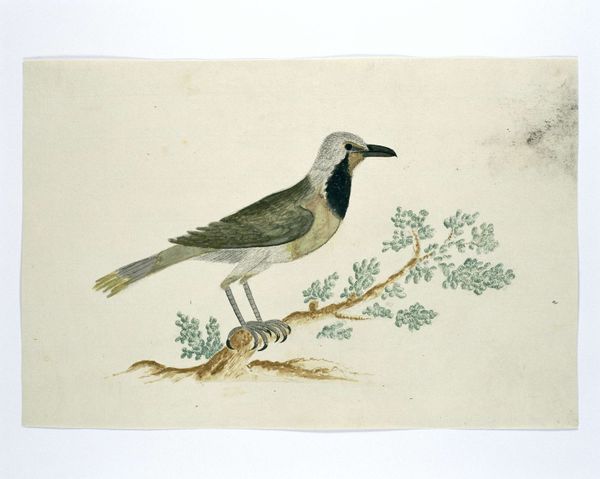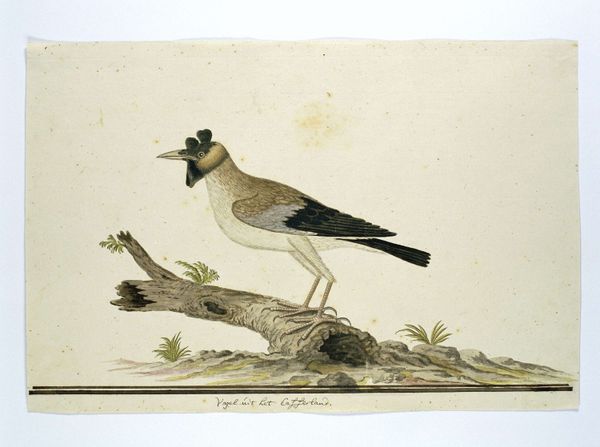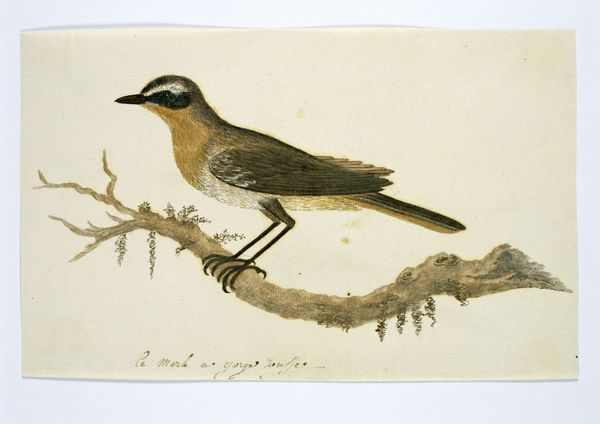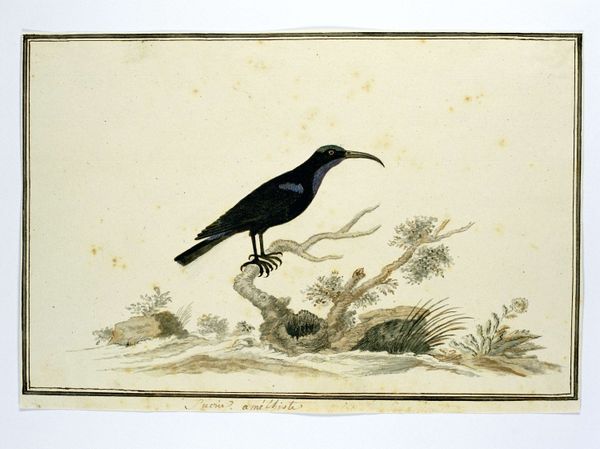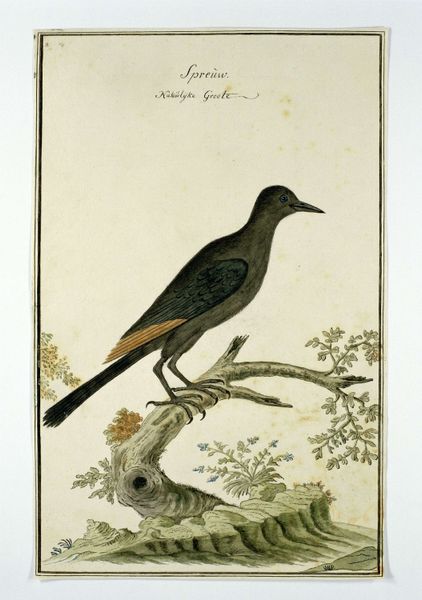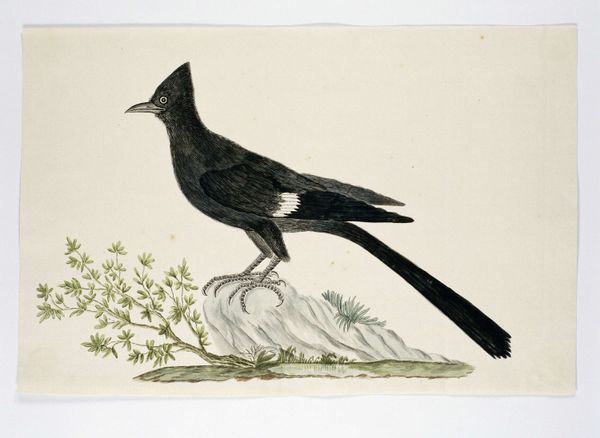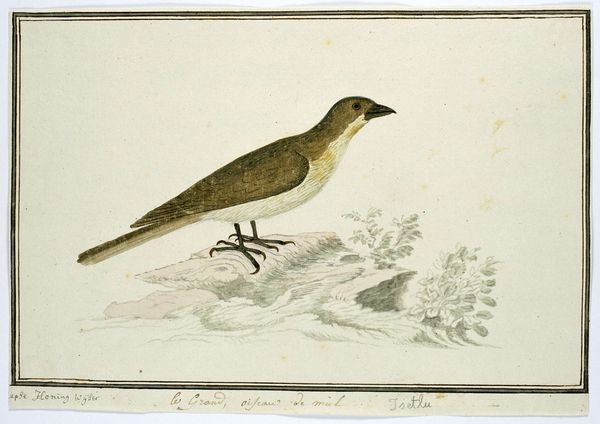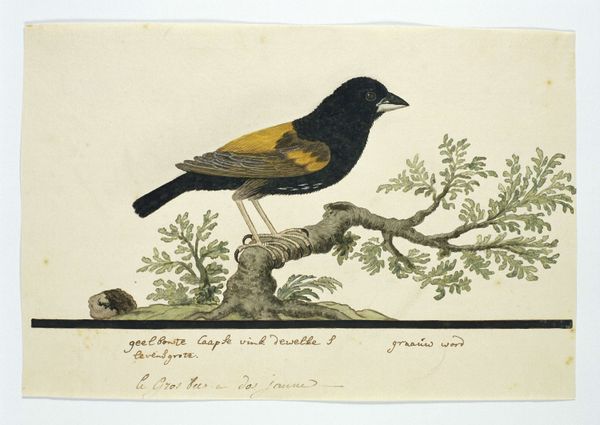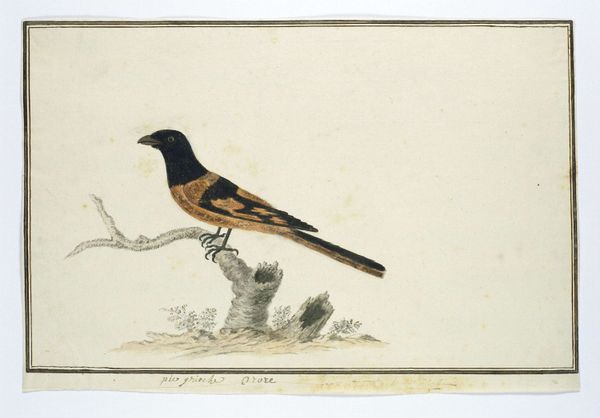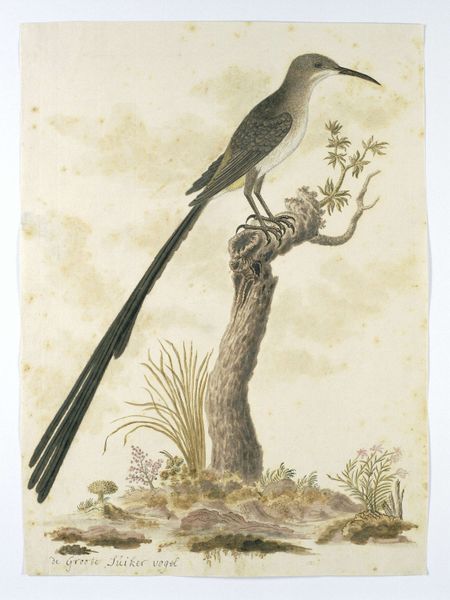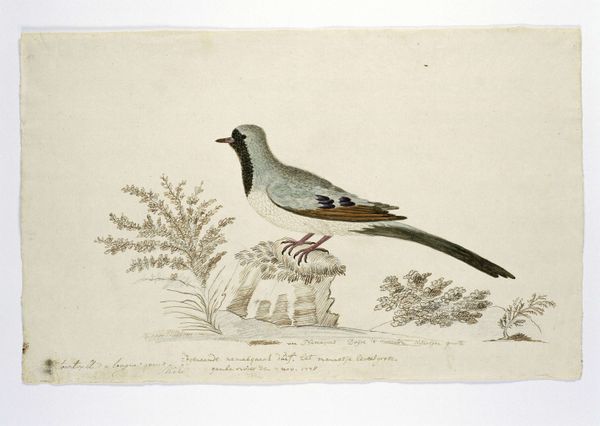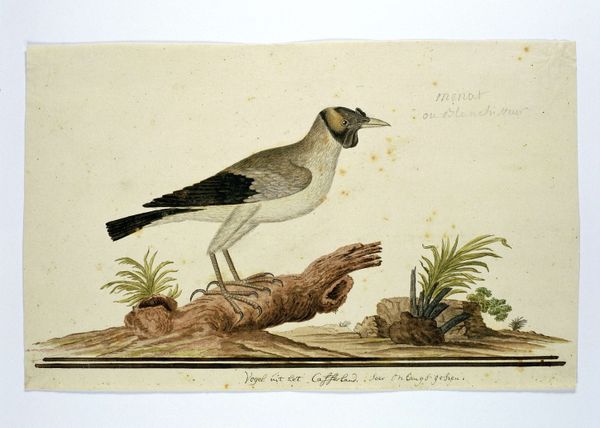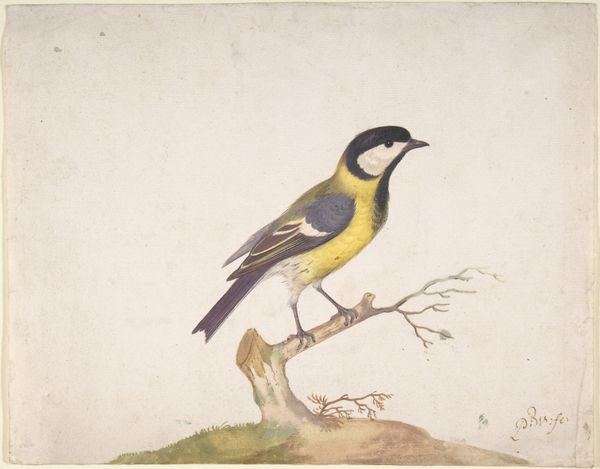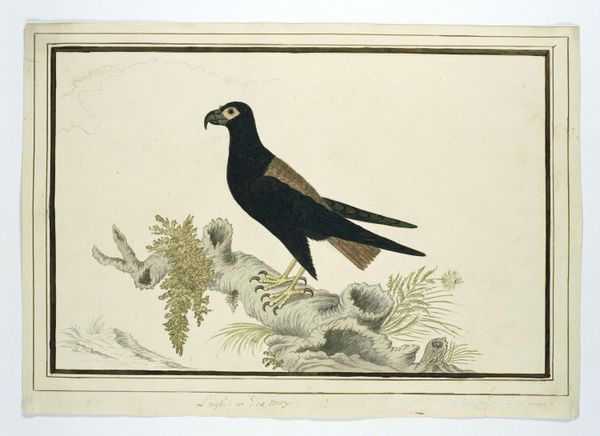
drawing, watercolor, pencil
#
drawing
#
toned paper
#
landscape
#
caricature
#
botanical illustration
#
watercolor
#
pencil
#
watercolour illustration
#
naturalism
#
botanical art
#
realism
Dimensions: height 660 mm, width 480 mm, height 194 mm, width 329 mm, height mm, width mm
Copyright: Rijks Museum: Open Domain
Robert Jacob Gordon made this watercolour of a Bokmakierie, or Telephorus zeylonus, in 1778. He was working for the Dutch East India Company in what is now South Africa. This image reflects both scientific curiosity and colonial power. Gordon’s detailed rendering of the bird speaks to the Enlightenment’s emphasis on empirical observation and classification, an approach that shaped institutions like museums and botanical gardens. But it’s impossible to separate this scientific impulse from the context of colonial expansion. Gordon’s project was intertwined with the economic and political ambitions of the Dutch East India Company. He wasn't just recording nature, but also claiming knowledge and resources for the colonizers. To fully understand this image, we can consult historical archives, travelogues, and scientific publications. These resources illuminate the complex relationships between art, science, and colonialism in the 18th century.
Comments
No comments
Be the first to comment and join the conversation on the ultimate creative platform.
